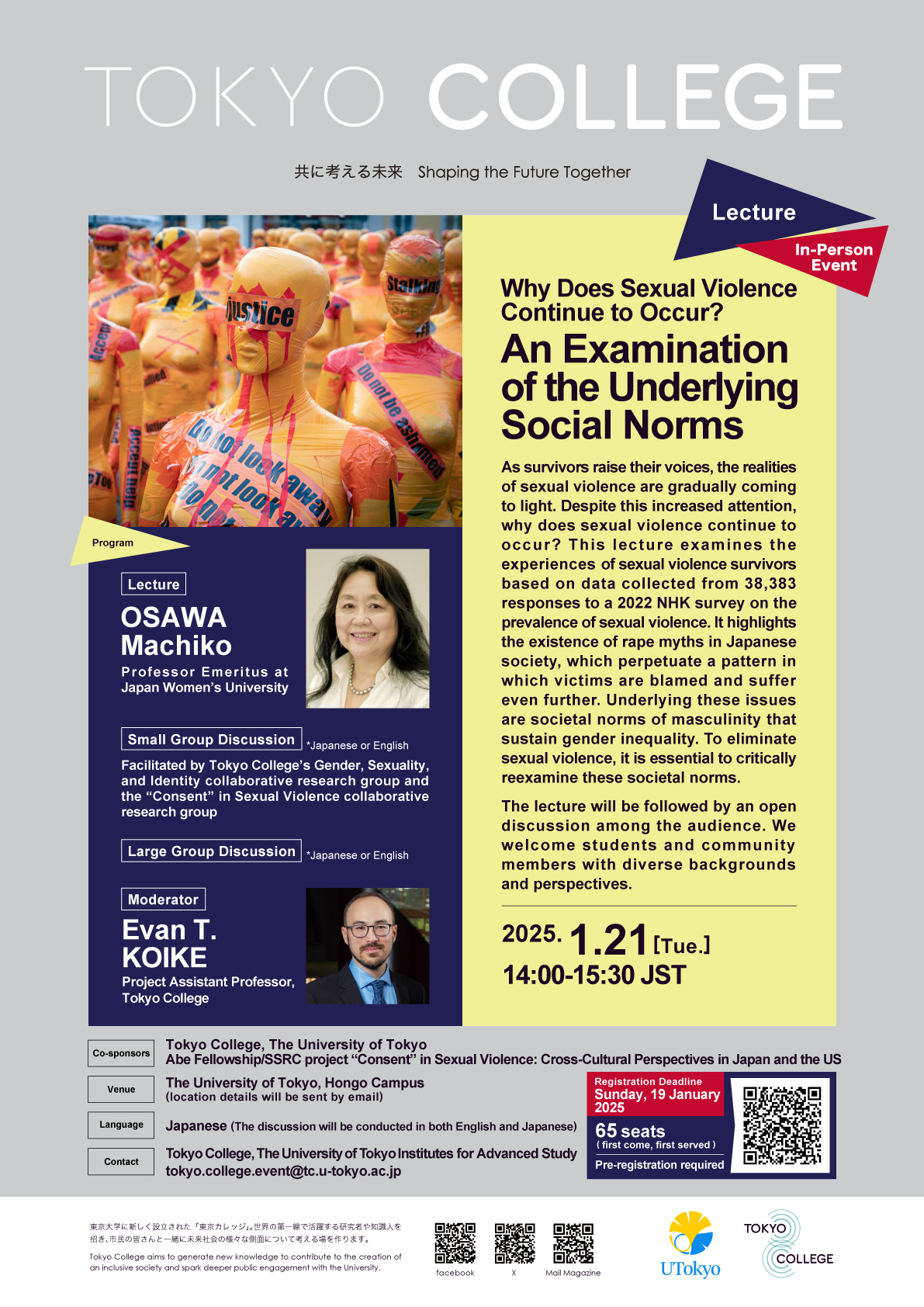Why Does Sexual Violence Continue to Occur? An Examination of the Underlying Social Norms (Lecture by Prof. OSAWA Machiko)

| Date(s) | Tuesday, 21 January 2025, 14:00-15:30 JST |
|---|---|
| Venue |
The University of Tokyo, Hongo Campus (location details will be sent by email) Register here *Register by Sunday, January 19, 2025 |
| Registration | Pre-registration required (65 seats - First come, first served) |
| Language | Japanese (The discussion will be conducted in both English and Japanese) |
| Abstract |
As survivors raise their voices, the realities of sexual violence are gradually coming to light. Despite this increased attention, why does sexual violence continue to occur? This lecture examines the experiences of sexual violence survivors based on data collected from 38,383 responses to a 2022 NHK survey on the prevalence of sexual violence. It highlights the existence of rape myths in Japanese society, which perpetuate a pattern in which victims are blamed and suffer even further. Underlying these issues are societal norms of masculinity that sustain gender inequality. To eliminate sexual violence, it is essential to critically reexamine these societal norms. The lecture will be followed by an open discussion among the audience. We welcome students and community members with diverse backgrounds and perspectives. |
| Program |
Lecture (Japanese only) Small Group Discussion (Japanese or English) Large Group Discussion (Japanese or English) Moderator |
| Organized by | Tokyo College, The University of Tokyo/ Abe Fellowship/SSRC project “Consent” in Sexual Violence: Cross-Cultural Perspectives in Japan and the US |
| Contact | tokyo.college.event@tc.u-tokyo.ac.jp |















